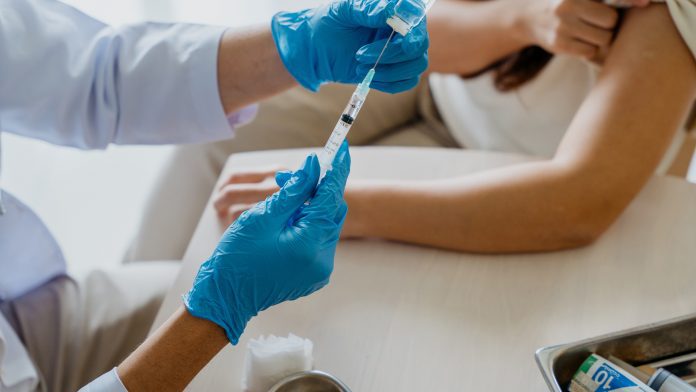
The COVID-19 vaccine has been proven not to reduce the efficacy of nasopharyngeal cancer treatment, despite previous concerns.
Drugs that activate the immune system against tumours are often used to treat patients with nasopharyngeal cancer. However, some scientists feared that COVID-19 vaccination could reduce the effects of cancer treatment and cause severe side effects.
A study by the Universities of Bonn and Shanxi in the People’s Republic of China has given the all-clear regarding vaccination. The researchers found that anti-cancer drugs worked better after vaccination.
The results have been published in the journal Annals of Oncology.
What is nasopharyngeal cancer?
Nasopharyngeal cancer affects the part of the throat connecting the back of the nose to the back of the mouth. It can be difficult to recognise as the symptoms are often similar to other, less serious conditions. Many people with nasopharyngeal cancer do not have any symptoms until the cancer reaches an advanced stage.
Nasopharyngeal cancer is a relatively uncommon form of cancer in China. However, in certain parts of southern China and many other countries in Southeast Asia, the disease is widespread. Some researchers believe the reason for this may be the frequent use of air conditioning in the hot and humid regions
Nutritional factors may also play an important role in the development of the disease. In Taiwan, nasopharyngeal cancer is considered one of the leading causes of death among young men.
Why are scientists concerned about COVID-19 vaccinations in cancer patients?
Many cancer cells can subvert the body’s immune response. This is done by the PD-1 receptor. Doing this can effectively shut down these endogenous defence forces. Drugs can be used to block PD-1 receptors, enabling the immune system to fight the tumour more effectively.
COVID-19 vaccines stimulate the same immune response, involving the PD-1 receptor.
“It was feared that the vaccine would not be compatible with anti-PD-1 therapy. This risk is especially true for nasopharyngeal cancer, which, like the SARS Cov-2 virus, affects the upper respiratory tract,” explained Dr Jian Li of the Institute of Molecular Medicine and Experimental Immunology (IMMEI) at the University Hospital Bonn.
The researchers wanted to find out if this concern was justified. To do this they analysed the treatment outcomes of 1,5000 patients treated across 23 hospitals in the People’s Republic of China
Performing a large multi-centre study allowed for particularly informative results as the researchers had access to a very diverse range of participants. Additionally, the results were not distorted by regional characteristics. A subset of 373 affected individuals had received the Chinese vaccine Sinovac.
“Surprisingly, they responded significantly better to anti-PD-1 therapy than the unvaccinated patients,” explained Dr Christian Kurts, Director of IMMEI and member of the Transdisciplinary Research Area “Life & Health” and the Cluster of Excellence ImmunoSensation.
Researchers say they do not fully understand why the nasopharyngeal cancer treatment was more successful after vaccination.
“Furthermore, they did not experience severe side effects more often. We assume that vaccination activates certain immune cells, which then attack the tumour. We will now investigate this hypothesis further,” said Dr Qi Mei of Shanxi University Hospital.









